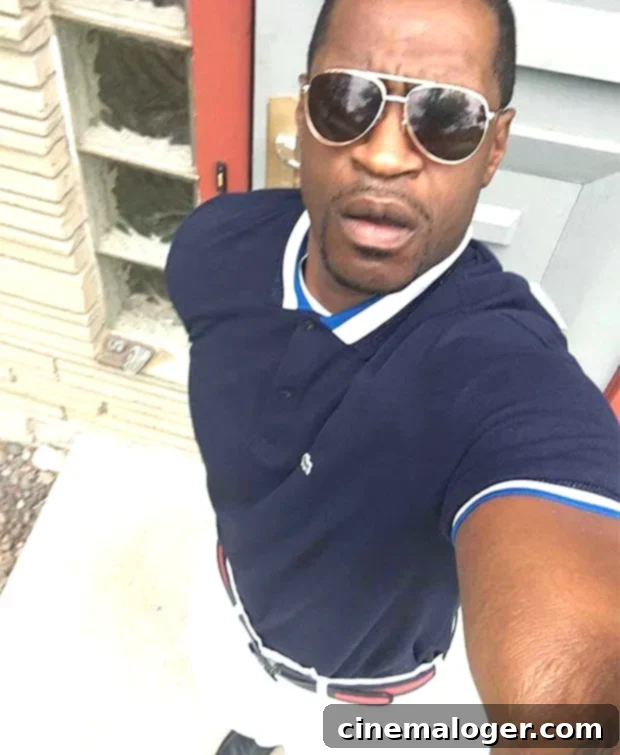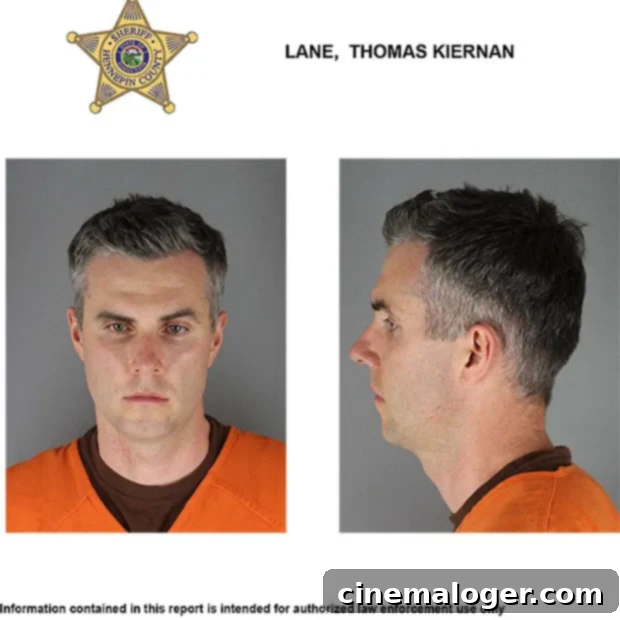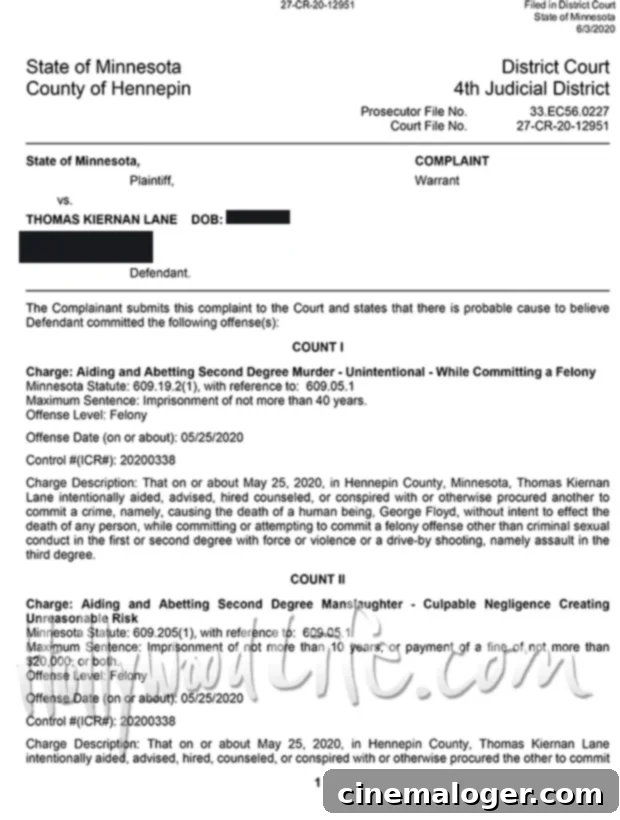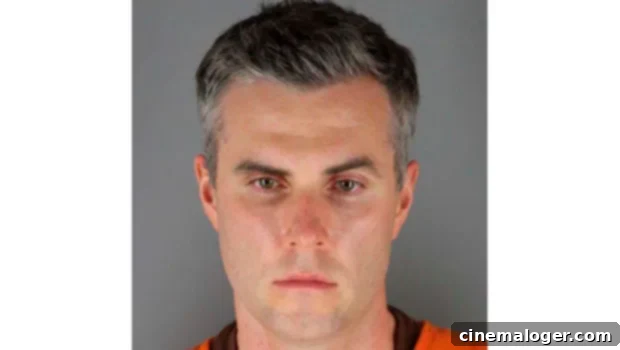Former Minneapolis Officers Convicted: Upholding Civil Rights in George Floyd’s Tragic Death
The tragic death of George Floyd on May 25, 2020, ignited a global movement for racial justice and police accountability. At the heart of this unfolding narrative are the legal proceedings against the four Minneapolis police officers involved. While Derek Chauvin, the officer seen kneeling on Floyd’s neck, faced and received conviction for murder, the focus also turned to the three other officers present: Thomas Lane, J. Alexander Kueng, and Tou Thao. These officers, who failed to intervene or render crucial medical aid, have since faced federal charges and convictions for violating George Floyd’s civil rights, marking a significant moment in the pursuit of justice and the broader conversation around police duty and human dignity.
The legal journey for these officers has been complex, encompassing both state and federal charges. Their convictions on federal charges underscore a critical aspect of law enforcement responsibility: the inherent duty to protect and serve, even when a fellow officer is engaged in misconduct. This article delves into the convictions of Lane, Kueng, and Thao, exploring the details of their involvement, the legal processes, and the profound implications these cases hold for police reform and civil rights nationwide.
The Fateful Encounter: May 25, 2020
The chain of events that led to George Floyd’s death began with a seemingly minor incident. On the evening of May 25, 2020, officers Thomas Lane and J. Alexander Kueng responded to a 911 call from Cup Foods in Minneapolis, reporting that a man had used a counterfeit $20 bill. Upon arriving at approximately 8:08 p.m., they located George Floyd in his car around the corner from the store.
According to the criminal complaint, Officer Lane approached Floyd’s vehicle, drawing his gun and pointing it at Floyd through the open window, instructing him to show his hands. After Floyd placed his hands on the steering wheel, Lane reholstered his weapon. Lane then ordered Floyd out of the car, physically removed him, and handcuffed him. This initial interaction set the stage for the tragic events that would follow, as Floyd, visibly distressed, began to resist being placed into the squad car, claiming he was claustrophobic and repeatedly stating he couldn’t breathe.

Escalation and Officers’ Roles
Shortly after Lane and Kueng’s arrival, Officers Derek Chauvin and Tou Thao arrived in a separate squad car around 8:14 p.m. It was during this period that the situation dramatically escalated. The officers made several attempts to get George Floyd into the backseat of squad car 320. During this struggle, George Floyd went to the ground face down, still handcuffed. Officer Kueng held George Floyd’s back, while Officer Lane held the man’s legs. Crucially, it was Derek Chauvin who then pressed his knee onto George Floyd’s neck, maintaining this position for an extended period.
Throughout this agonizing ordeal, George Floyd repeatedly cried out, “I can’t breathe,” pleading for his life. Bystanders also urged the officers to release him and check his pulse. Despite these desperate pleas and the evident distress, Chauvin maintained his pressure on Floyd’s neck. Officer Thao stood by, actively preventing concerned citizens from intervening, effectively creating a barrier while Floyd suffered.

Officer Lane, notably, was the only one of the three who expressed any audible concern during the arrest. He asked Chauvin, “should we roll him on his side?” and stated, “I am worried about excited delirium of whatever.” Chauvin dismissed these concerns, replying, “No, staying put where we got him” and “That’s why we have him on his stomach.” By 8:24 p.m., George Floyd had stopped moving. An ambulance eventually arrived, and he was transported to Hennepin County Medical Center, where he was pronounced dead.
Legal Proceedings and Convictions
The immediate aftermath of George Floyd’s death saw widespread protests across the United States and globally, demanding justice and accountability. Derek Chauvin was swiftly arrested and charged with second-degree murder, third-degree murder, and manslaughter. His conviction in April 2021 was a landmark moment, but the legal battle for the other three officers was equally significant in defining the scope of police responsibility.
Charges for Aiding and Abetting and Civil Rights Violations
On June 3, 2020, Minnesota Attorney General Keith Ellison announced charges against Thomas Lane, J. Alexander Kueng, and Tou Thao. They were charged with aiding and abetting second-degree murder and aiding and abetting second-degree manslaughter. Ellison emphasized the gravity of the situation: “We’re here today because George Floyd is not here. He should be here. He should be alive but he’s not.” These state charges highlighted their complicity in the crime.
In addition to state charges, the three officers faced federal charges for violating George Floyd’s civil rights. These federal charges focused on their failure to intervene and their failure to render medical aid while George Floyd was in their custody. The federal trial for these charges began, aiming to hold them accountable under a different legal framework that protects individual liberties from state actors.
The Federal Verdict
On February 24, 2022, a federal jury found Thomas Lane, J. Alexander Kueng, and Tou Thao guilty of violating George Floyd’s civil rights. Specifically, they were convicted of depriving Floyd of his constitutional rights by failing to provide medical care during the fatal arrest. Kueng and Thao were also convicted of failing to intervene and stop Derek Chauvin’s use of unreasonable force. Lane, having made a slight attempt to get Chauvin to stop partway through, was not charged with failing to intervene, but his conviction for failing to render aid remained. These convictions were a powerful affirmation of the legal duty of police officers to protect the well-being of individuals in their custody, even when a fellow officer is engaged in misconduct.
Bail for Lane, Kueng, and Thao was initially set at $1,000,000 apiece during their first court appearance on June 4, 2020, while Chauvin’s was set at $500,000. Thomas Lane was later released on $750,000 bail on June 10, 2020, after his family raised funds for his legal defense. He faces a maximum sentence of up to 40 years in prison if convicted on all state counts, in addition to the federal sentence.
Aftermath and Calls for Reform
The death of George Floyd and the subsequent legal actions spurred a profound re-evaluation of policing practices across the United States. In Minneapolis, tangible reforms were quickly implemented. Just two days after Lane, Thao, and Kueng were charged with aiding and abetting, the Minneapolis Police Department (MPD) banned the use of chokeholds by police officers. This agreement, made in conjunction with the Minnesota Department of Human Rights, mandated that any officer must immediately report the use of a neck restraint or chokehold to their commander or superior.
Furthermore, the new policy established a crucial “duty to intervene.” If an officer witnesses a colleague attempting to use a prohibited chokehold, they are required to intervene verbally, or physically if necessary. Failure to do so could result in punishment as severe as that faced by the officer committing the prohibited action. Additionally, the police chief or a deputy chief must now authorize the use of chemical agents, rubber bullets, flash-bangs, batons, and marking rounds, signifying a move towards greater oversight and accountability in the use of force.
Officer Thomas Lane’s Background
Thomas Lane’s personal background presented a stark contrast to the severity of the charges he faced. A Twin Cities native, Lane was one of the four police officers fired on May 26, 2020. An anonymous relative described him to the Star Tribune as “compassionate and amusing and insightful.” He was married in 2018 and was reportedly excited to continue his family’s legacy in law enforcement. His grandfather, Donald M. Mealey, was a Minneapolis police detective who passed away in 2008 at the age of 92, and other relatives also served with the Minneapolis police. Thomas Lane himself received his law enforcement license in August preceding Floyd’s death, making him a relatively new officer.

“He doesn’t have a bad bone in his body,” the relative told the Star Tribune, expressing sympathy for both Lane and the Floyd family, stating, “This is just a terrible event and I feel bad for the lives lost and the Floyd family.” Despite these personal sentiments, the legal system ultimately focused on his actions and inactions during the critical moments of George Floyd’s death.
The Broader Impact and Legacy
The convictions of Thomas Lane, J. Alexander Kueng, and Tou Thao for violating George Floyd’s civil rights extend beyond individual accountability. They send a powerful message about the collective responsibility of law enforcement officers. These cases reinforce the idea that police officers have an affirmative duty to protect individuals in their custody, and that passive observation of excessive force or failure to provide necessary medical aid can lead to severe legal consequences. The outcome of these trials is a testament to the persistent demands for justice and an evolving understanding of police accountability within the American legal system.
The “Fed Up-Rising” that followed George Floyd’s death galvanized millions, bringing calls for criminal justice reform to the forefront of national discourse. The convictions serve as a crucial step in addressing the systemic issues of police brutality and racial injustice. They highlight the importance of bystander intervention policies, de-escalation training, and a culture of accountability within police departments. As the nation continues to grapple with these complex issues, the case of George Floyd and the officers involved remains a powerful reminder of the urgent need for ongoing reform and the unwavering pursuit of civil rights for all.
